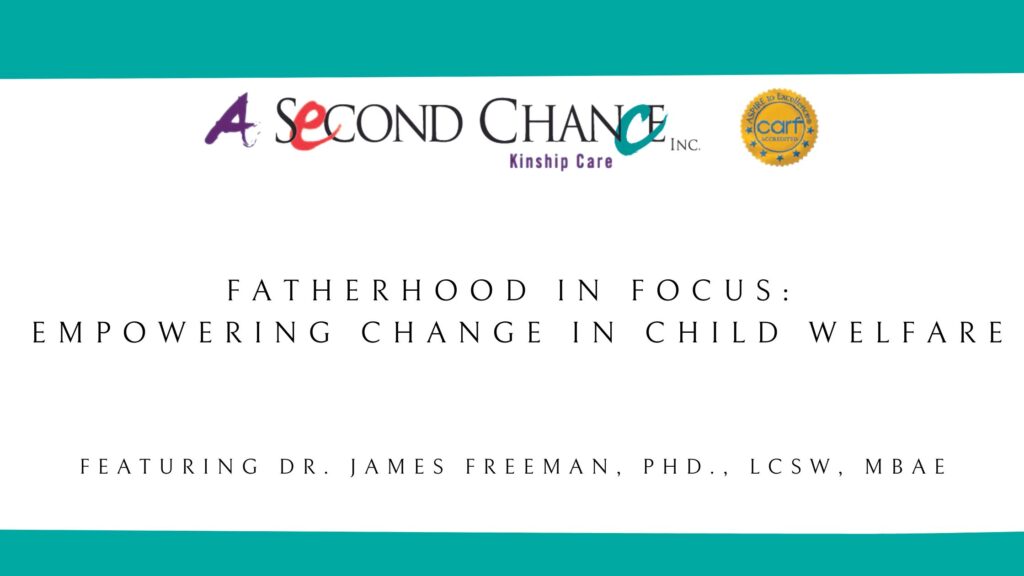Blog
Fatherhood in Focus: Empowering Change in Child Welfare
In the realm of child welfare, the voices and roles of fathers are often overshadowed or omitted altogether. Dr. James Freeman, Chief Program Officer at ASCI and a passionate advocate for father involvement in child welfare, shares profound insights drawn from his personal experiences and professional journey. His perspective sheds light on the pivotal role fathers play in the lives of children navigating the complexities of the child welfare system.

Dr. Freeman’s journey into child welfare was deeply personal, rooted in his profound love for Black[DK1] families. He reflects, “What motivated me to work in child welfare was because of my love for Black families. My own personal story, my family’s challenges and triumphs.” This intimate connection to his own family’s struggles, including his sister’s journey through addiction and the subsequent involvement of the child welfare system, ignited his passion to make a difference.
For Dr. Freeman, the role of fathers in child welfare is clear but often overlooked. He emphasizes, “The role of fathers in child welfare is simply to advocate.” Fathers bring a unique perspective and set of strengths to the table, offering children not only identity but also the courage to explore and take risks. He contrasts paternal protection and encouragement with maternal nurturing, highlighting the essential balance both roles bring to a child’s development.
Dr. Freeman acknowledges the pervasive stereotypes and challenges faced by fathers, particularly Black fathers, within the child welfare system. He confronts these stereotypes head-on, noting, “Black fathers are stereotyped as not competent, not available, not caring enough.” These misconceptions can hinder fathers’ engagement and undermine their potential contributions to their children’s lives.
Drawing from his extensive experience, Dr. Freeman advocates for inclusivity and genuine respect as key strategies to engage fathers effectively. He asserts, “Bringing them to the table, valuing their opinion authentically, and respecting fathers enough to ask them, ‘What would you like us to explore?'” These inclusive practices not only empower fathers but also enrich the child welfare process by tapping into additional familial resources.
Addressing policymakers and community leaders, Dr. Freeman stresses the importance of systemic change to support father involvement in child welfare. He advocates for policies that mandate the inclusion of fathers and their families in assessments and decision-making processes. “We need to make an honest attempt with authentic respect and support to include that father,” he asserts, emphasizing the need for structural changes to recognize and value paternal contributions.
To fathers hesitant to engage with the child welfare system, Dr. Freeman offers powerful advice: “Fight for your child’s identity, fight for their life.” He acknowledges the daunting challenges fathers may face but encourages them not to relent in their pursuit of involvement. His words resonate with a call to action, urging fathers to persevere despite adversities, knowing that their children will ultimately recognize and cherish their efforts.
Dr. James Freeman’s insights into fatherhood within the child welfare system are not just professionally informed but deeply rooted in personal conviction and experience. His advocacy underscores the transformative potential of paternal involvement in shaping positive outcomes for children. As we reflect on his words, we are reminded of the critical need to challenge stereotypes, advocate inclusivity, and empower fathers to play an active role in their children’s lives, ensuring a more compassionate and effective child welfare landscape for all families.